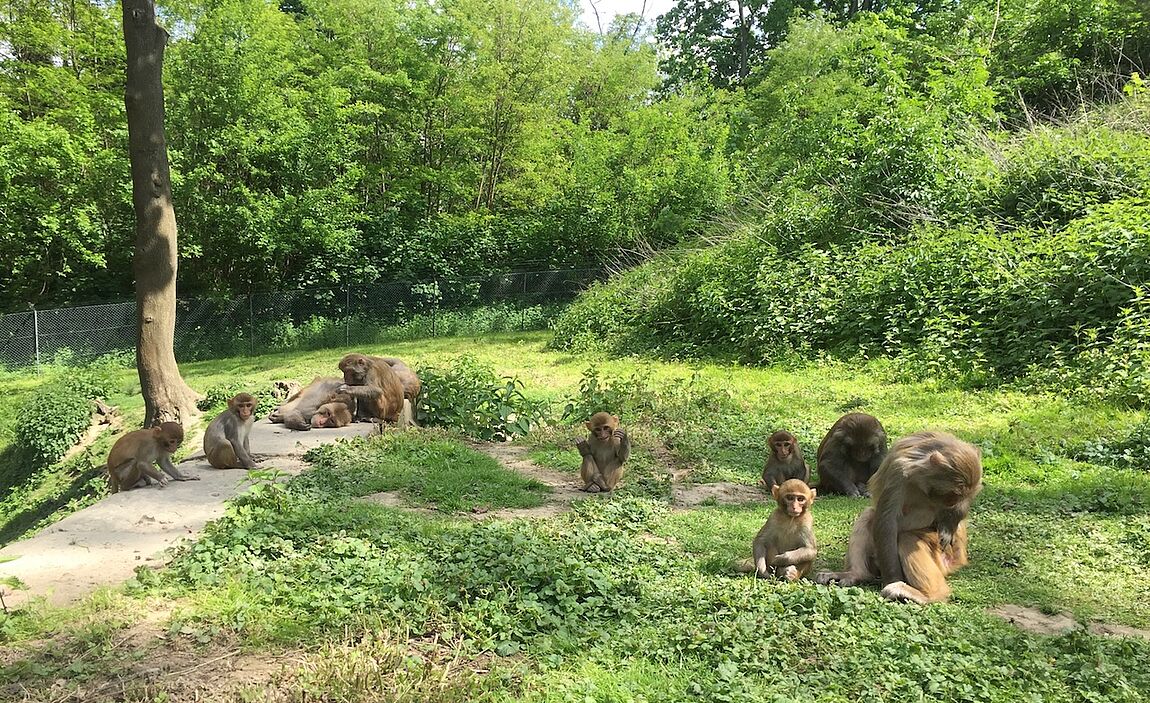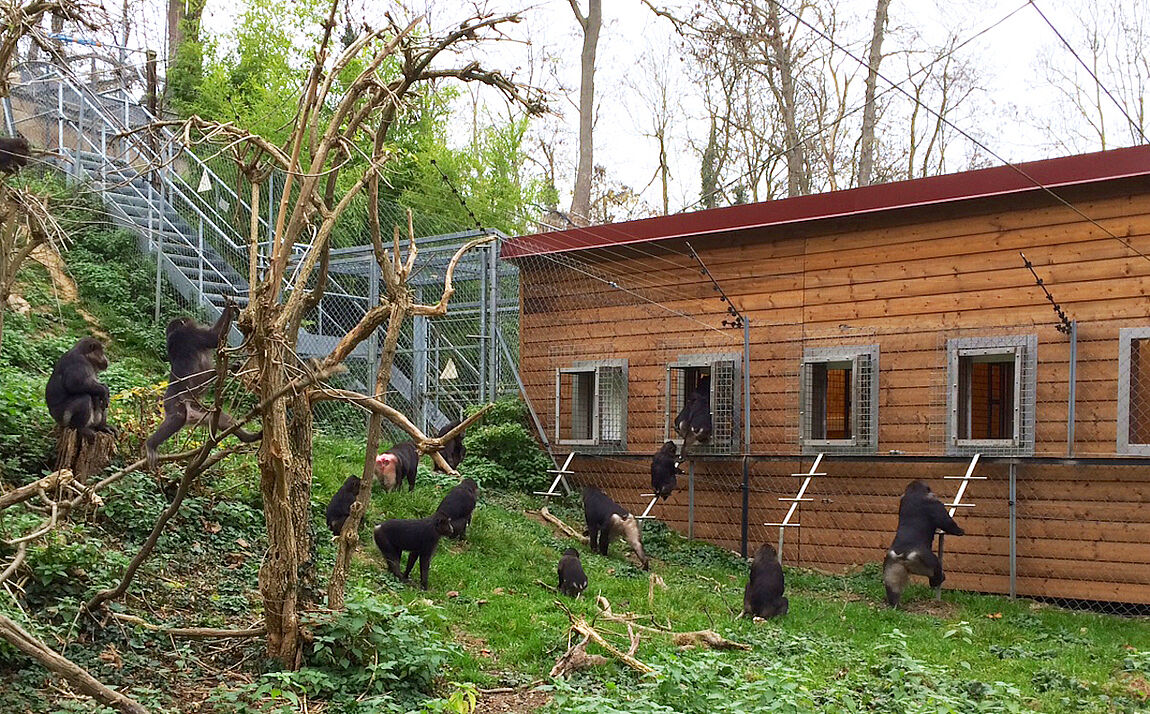The SILABE platform provides access for French and international research teams to several social groups of various species, living in semi-free-range enclosures. These housing conditions are ideal for behavioural and cognitive studies on non-human primates (NHP).
An academic research team from the Cognitive and Adaptive Neuroscience Laboratory (LNCA) specialising in neuroscience and animal behaviour is permanently based at the SILABE platform. The knowledge and advancements resulting from their work contribute on a daily basis to the improvement of the various teams' good practices, particularly in the design, evaluation and implementation of new environmental enrichment, in the training of animals for cooperation in care and handling, and more generally in the improvement of the welfare of captive-held animals.
The team affiliated to LNCA, constituted by Sébastien Ballesta, Charlotte Canteloup and Hélène Meunier, is interested in primates cognition and sociality, including three species of macaques of different social grades, the Tonkean macaque, the long-tailed macaque, and the rhesus macaque, as well as two species of capuchins, the white-faced capuchin and the brown capuchin. Their goal is to better understand the evolutionary history of our cognitive, social, and cultural abilities. Their approaches, specific to ethology, cognitive science, and neuroscience, are complementary and allow them to address the psychological and biological bases of primate cognition in a multidisciplinary manner.
The team's project focuses on four main areas :
- The study of the socio-cognitive abilities underlying theory of mind, i.e., enabling an individual to attribute unobservable mental states to themselves or others (e.g., attentional state, intention, perception, knowledge, belief, consciousness, and self-awareness)
- The study of social and economic decision-making in situations of probable gain or loss
- The study of social learning underlying cultural behaviors, as well as the bidirectional links governing social relationships, social learning, and communication
- The study of the neuroanatomical bases of social tolerance in different species of macaques
The team uses both traditional methodologies—behavioral observations, cognitive experiments, postmortem neuroanatomy—and more innovative ones—automated cognitive tests, MRI analyses. They have developed on-site automated cognitive testing devices on touch screens (MALT) that enable them to study physical and social cognition in an innovative, continuous, and longitudinal manner on different groups of monkeys consisting of individuals of varying ages, sexes, and hierarchical status.
Their expertise, combined with national and international collaborations, enables them to take a multidisciplinary and comparative approach to animal cognition and its biological basis. They are also active members of the international consortia ManyPrimates and MacaqueNet.
The outstanding environment and the infrastructures on site make it possible to offer a research and training tool that respects both regulations and animal welfare. Primates are at the heart of the major questions regarding human origins and, because of their proximity to humans, are a valuable model for understanding certain cognitive processes.


